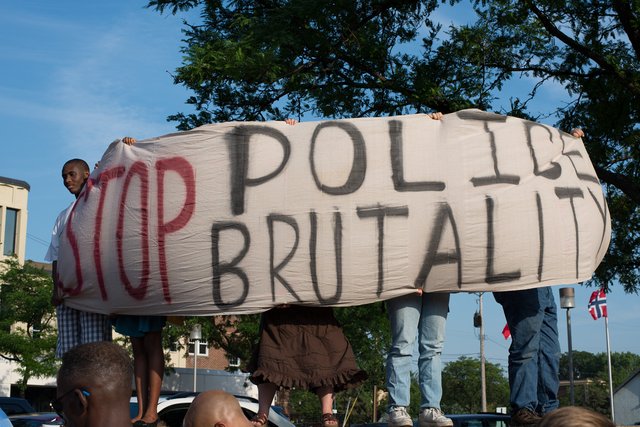The Government's Police Know How To End A Year
In Texas, a cop was arrested for the sexual abuse of a minor - his girlfriend's 13-year-old daughter. Jesus Gonzalez, 42, is accused of having a months-long abusive affair with the girl.
Within days after Christmas the Elmendorf police officer was charged with a first-degree felony of continuous sexual abuse of a child. The mother caught them via her daughter's phone.
Previously, Gonzalez worked as a cop in other departments, including the Bexar County Juvenile Detention Center, for about eighteen years. Texas Commission on Law Enforcement records show he had completed the sexual assault and child abuse training courses that are required of his department, and that of many in the United States.
Elmendorf Police Chief Marco Peña said "sometimes we don’t know what individuals--what’s in their minds and their hearts sometimes." Probably because the human resources department is dictated by the government.
Unlike Uber, the private ride-sharing service, where a California driver Keith Avila saved a teenage sex-traffic victim.
He picked up three girls in Elk Grove, two adults and the promiscuous-clad 16-year-old and after suspecting foul play eavesdropped on their conversation.
The ring was busted and the girl was saved. Thanks to a driver, who then called the cops, who gave them the information he had. Keith Avila, a photographer by trade, has no police training known publicly and was able to do more to protect this runaway than any cop has.
The problem is not with poor training, but with the hiring process to begin with. Police departments tend to hire, let alone attract, those with violent tendencies. Of course they will pass the tests - it does not mean they will abide by the lessons.
Possibly politicians and bureaucrats actually, somehow think standardized testing works.
This problem would end with private police. Two facts should be noted.
First, notice how police unions and departments fight tooth and nail against any privatization or reduction measures, similar to the fights between the taxi worker unions and private ride-sharing entrepreneurs.
Of course, cops do not want private competition where they know they will be out-funded, out-operated, and outdone in most, if not every, positive category. Just like private ride-sharing - such as Uber, Lyft, and Cell411's ride sharing service - has done in comparison with heavily-regulated taxi services.
Second, the closest to a private police service in modern history has been the Vipers Threat Management Center in Detroit, Michigan. They are so effective, judges advise battered women to call them and not the Detroit and Wayne County cops. Even high-end customers prefer their services than to the public counterpart.
They serve their community doubling as a charity and for-profit security. They operate under a business model reflected by price mechanisms in all the white-market services they offer. Unlike cops who depend on stolen money at gunpoint for their livelihood.
Private policing would mean poor-performance officers would be demoted or fired, law-breaking officers would be fired or arrested, high-performance officers would be promoted, and performance would be based on protection, not tickets and arrests.
The private option would also mean the end to the militarization on police and a reduction in police corruption. If people had a choice of competing police departments they would choose the one with the best defense and the least brutality.
Leaving the Detroit and Elmendorf police departments screwed.
But alas, lest we forget, governments and their subordinates look out for no. one. And no. one is not you.
Instead of going to cops or courts for what they call security and justice, invest in alternatives. Such as Vipers, Shield Mutual, and the Cell411 app. Governments do not care about you, but private companies care about your business.
